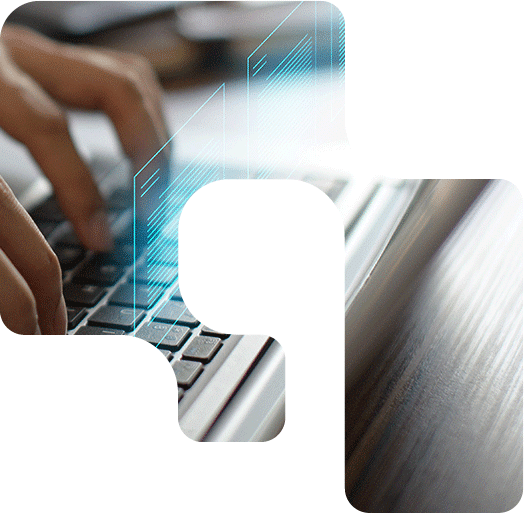Minimum base formats
Choosing your electronic invoicing platform carefully before 2024 is important, and the proper management of your electronic invoicing then depends on this choice.
However, the public portal (PPF) operated by AIFE provides a minimum set of services to ensure smooth circulation between dematerialization platforms in order to simplify exchanges.

Exchange between PDPs
As trusted third parties, Partner Dematerialization Platforms (PDPs) provide services enabling the exchange of invoices, invoice data and electronic reports for the tax authorities. They must respect genuine interoperability between themselves for the exchange of invoices, thus completely replacing the role previously assigned to the Public Billing Portal (PPF). The compliance audit applied to PDPs, and AFNOR’s work on standardizing exchanges, guarantee that all electronic transactions meet the required structure, security and compliance standards.
Partner Dematerialization Platforms (PDPs) are required to accept at least the so-called “core formats”.
These are electronic invoicing formats compliant with European standard EN16931, UBL and CII, plus the Factur-X hybrid format, which is a PDF invoice containing invoicing data in a structured format.
Some PDPs, including Artéva, also accept other formats, such as EDIFACT, TRADACOM, ANSIX12 and others.
In addition, PDP platforms are required to transmit billing data to the tax authorities. This includes data directly derived from processed invoices, or transaction data for B2B sales and international B2B purchases/sales, declared by companies subject to VAT in France.
A solution designed for customers
The minimum set of services set up by the public portal allows companies to adapt their pace to their digital maturity.
For small businesses
The smallest of them, and often the least prepared for this transition, will be able to benefit from a switch to electronic invoicing, at a reduced cost thanks to certain services made available to them: online entry, submission of PDF invoices, automatic processing of invoices in the minimum base format as soon as their invoicing software allows it.
A system completed by PDPs
PDPs can exchange invoices in different formats such as EDIFACT format, and offer value-added services: interfacing with management software (ERP), translation, invoice control, archiving for a period longer than the tax obligation of 6 years. It simplifies the transition to electronic invoices, which will take place gradually between 2024 and 2026.
Artéva’s role in the e-invoicing ecosystem
As a long-standing supplier of dematerialization services, ARTÉVA offers complementary OD and PDP services, providing companies with personalized support in the processing of electronic invoices, regardless of the format exchanged: minimum basis (UBL, CII and Factur-X) or sector-specific format (PFP, PFA, EDIFACT, TRADACOM, etc.).
Artéva, as a DO, maintains its role of helping companies to receive or transmit invoices via PDPs, in order to offer direct integration into company IT systems and automation of invoice management.


The advantages of the Partner Dematerialization Platform (PDP) offered by Artéva
In order not to clog up the services of the Public Billing Portal, and to allow companies to preserve an existing billing system established outside the minimum base, the DGFiP has planned the implementation of Partner Dematerialization Platforms as complementary solutions with high added value in the management of electronic invoices.
Artéva as a PDP allows complete integration of incoming and outgoing billing cycles thanks in particular to the cross-referencing with other commercial documents such as contracts, orders, delivery notes, etc. The user company thus has a complete solution for processing customer (Order to Cash) and supplier (Procure to Pay) cycles.
Schedule your appointment
Are you interested in an Orchestrade® demo?
By filling out our form, one of our experts will contact you to set up an appointment. In order to show you the scope of our solution!


